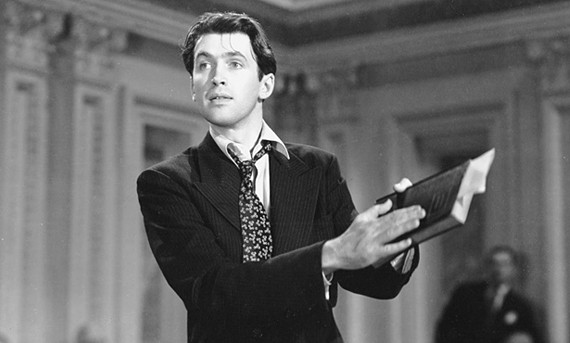Smarts, Big Tech, and Faustian bargains
Do digital tools make us smarter? It’s a question raised by some who study technology and its effects on cognition.
In my freshman writing classes, we usually explore this topic through essays like Nicholas Carr’s “Is Google Making Us Stupid?” and Clive Thompson’s Smarter Than You Think: How Technology Is Changing Our Minds for the Better. It’s obvious from the titles that these two authors view the impact of technology differently.
Of the two, Thompson generally attracts more enthusiasm. His optimism about how digital tools increase our intellectual capacity gives students a certain relief after our foray into Carr’s more skeptical approach. They often phrase their approval deterministically, saying we must “evolve” and “adapt,” even though these metaphors refer to a natural phenomenon directed not by human ingenuity, but by blind chance. Many of them take it further, viewing the internet as the sum total of human knowledge, digital messaging and social media as enabling social relations for the first time, and research as a new possibility because of the ease of browsing the Internet.
I’m still a little startled to hear such near unanimity echoing semester after semester. They can sound like advertising reps for the tech companies that have marketed to them relentlessly for most of their lives. While some of them are thoughtful about these technologies and their impact on thinking and relating, many of them aren’t. They are iGeners, and their devices have been a fact of life for as long as they remember.

In any case, the idea that the Internet makes us “smarter” seems suspect. It’s true that use of tools is a mark of intelligence; even crows show their intelligence by being able to use them. But do tools actually make anyone more intelligent? Clive Thompson would say yes. When asked if we are really getting smarter, or simply achieving amplified performance through technology, he replies,
To a certain extent I think the distinction might be kind of false because it proceeds with the idea that our intelligence has always been just in our heads. But our intelligence has never been entirely just in our heads. A huge amount of our thinking is what the philosopher Andy Clark would call taking place in the extended mind, which is to say, using all sorts of resources outside of us to help scaffold our thinking in new directions and capabilities that are impossible with the mind alone. That ranges from something as simple as being able to write something down so you no longer have to hold it in your head for the short or for the long term.
Interview with Psychology Today
To me, this represents our ability to improve efficiency, not our improvement in intelligence. The fact that I work long division on paper, or make a grocery list, doesn’t add new knowledge or create a bridge to new knowledge. It merely saves me time. I already know how to do long division, and I already know what I need at the store. I already know how to write. There is nothing new being added by the “scaffolding” of paper and pencil in either case.
To think creatively, the mind needs material. Being able to access information on a device makes us good technicians, but better thinkers? We must have a foundation of knowledge to work from in the first place — one encoded in our own minds, providing a basic grid through which to sift new input, and in which to build new understanding. This is a main component of education. Whether we go with Dorothy Sayers’ definition of an education as “The Lost Tools of Learning,” or use Wendell Berry’s term “furnishing the mind,” the universal assumption is that learning to think well involves having a storehouse of basic knowledge. Digital devices in no way compensate if this is missing. In fact, they may do more harm than good to the ability to think critically.
Nicholas Carr would agree, writing,
Scientists have begun exploring that question—and what they’re discovering is both fascinating and troubling. Not only do our phones shape our thoughts in deep and complicated ways, but the effects persist even when we aren’t using the devices. As the brain grows dependent on the technology, the research suggests, the intellect weakens.
“How Smartphones Hijack Our Minds“
What troubles me most when I hear these students talk about their technology is that they seem to have no awareness of the many filters between them and the data they consume. Some of these filters are naturally imposed, because not all that is worth knowing can be put into a form suited to cyberspace. But others, as we’ve seen dramatically in recent weeks, are humanly imposed. When C.S. Lewis writes in That Hideous Strength that technology doesn’t represent man’s power over Nature, but “the power of some men over other men with Nature as the instrument,” he captures the reality most inherently dangerous to liberal democracy.
With a few days till an important presidential election, we’ve seen that it isn’t impersonal technology, but individuals whose digital creations confer enormous concentrations of wealth and power, who can simply dam up the flow of information based on personal whims. On top of the decisions of social media execs, to see so many major news outlets cooperating to suppress the dissemination of vital information to American citizens should make it all too clear that technology is not making us smarter. It is making us knowledge-deprived, recipients of mere propaganda designed to shape our thought and behavior.
This isn’t conspiracy theory. We’re seeing it play out before our eyes. If there is an appropriate consequence for the technology giants, we might remember this moment as one in which floodgates open and some of the filters preventing the flow of knowledge will wash away. But if there is no accountability and true change, there will no longer be any question about whether technology makes us smarter. Those of us who refuse to forget what is thrown down the memory hole will remember this moment as the beginning of our greatest cultural impoverishment and disenfranchisement at the hands of Big Tech.




